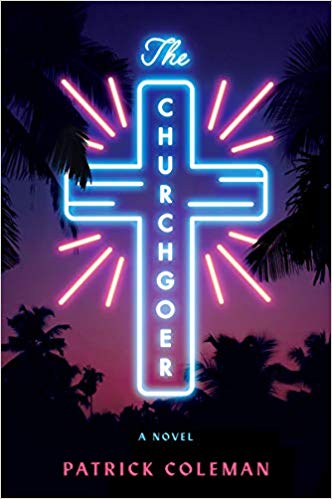Book Review: The Churchgoer by Patrick Coleman
The Churchgoer by Patrick Coleman
Genre: Fiction
I don’t write as many reviews about what I’m reading these days. So, you know when I stop to take the time to write about a book, I must really like it.
Patrick Coleman’s first novel, The Churchgoer, drew my attention on account if its title. It felt like an allusion to Walker Percy’s The Moviegoer, so I had to find out what it was about.
From the epigraph, we learn that Coleman is alluding, instead, to Philip Larkin’s poem, Church Going, which is something of a post-Christian exploration of what remains after faith. And so it is with Coleman’s protagonist, Mark Haines. Haines was previously a youth pastor in a non-denominational mega church somewhere in south Orange County or North Coast San Diego. When we first encounter Haines, he is fifteen years removed from walking away from his faith, his wife and daughter, and his church. He hates the church, he hates the suburbs, and the facade of faith that seems so prevalent in the coastal towns of Southern California.
The Churchgoer is a noir genre mystery that begins with Haines meeting a hitchhiker named Cindy, who has also been deeply hurt by the church. Mark’s desire to help Cindy draws him past the facade of suburban mega church life into the seedy underbelly of consumer Christian culture. There he finds pastors who care about budgets and bottom lines, youth groups that harbor drug dealers and pimps, and wealthy parishioners who treat the church like a country club.
And yet, Mark also meets people who demonstrate genuine belief; his co-worker Esmeralda, whose compassion is a life-line in Mark’s time of need; or, a young lesbian woman who cannot give up on the church even as the church has enacted policies that hurt her.
Coleman draws Haines into the world of all of these figures almost as if to teach his jaded protagonist that the world is both every bit as bad as he thinks it is and yet so much more hopeful and meaningful than that to which he has resigned himself.
In a way, The Churchgoer is an allusion to The Moviegoer. For Percy’s protagonist, Binx Bolling, movie-going is symbolic of the everyday malaise that prevents us from searching for meaning. Bolling is a skeptic who miraculously breaks out of his everydayness to embark on a quest for meaning. In contrast, Coleman’s Haines isn’t just a skeptic, he’s a post-Christian. He has embraced and left faith behind. He has concluded a quest for meaning with the determination that there really is nothing rather than something. And yet, even he awakens from his malaise in order to take on a quest. This is a quest that promises to prove that he is right; that there is nothing rather than something; that Christians are corrupt, or ignorant, or both. His quest does not lead him back to faith; but it does force him to confront the fact that his own life, his own body, is a cathedral ruin. That even in its brokenness and emptiness, it harkens back to what once was; it still bears witness to the idea of God. All of this leaving our pilgrim somewhat more reconciled to the remnants of his past that remain: his still Christian ex-wife, his estranged daughter, his Christian co-worker and friend, and even the young woman he set out to save in the first place.
In the words of Flannery O’Connor, “the life you save may be your own.”


